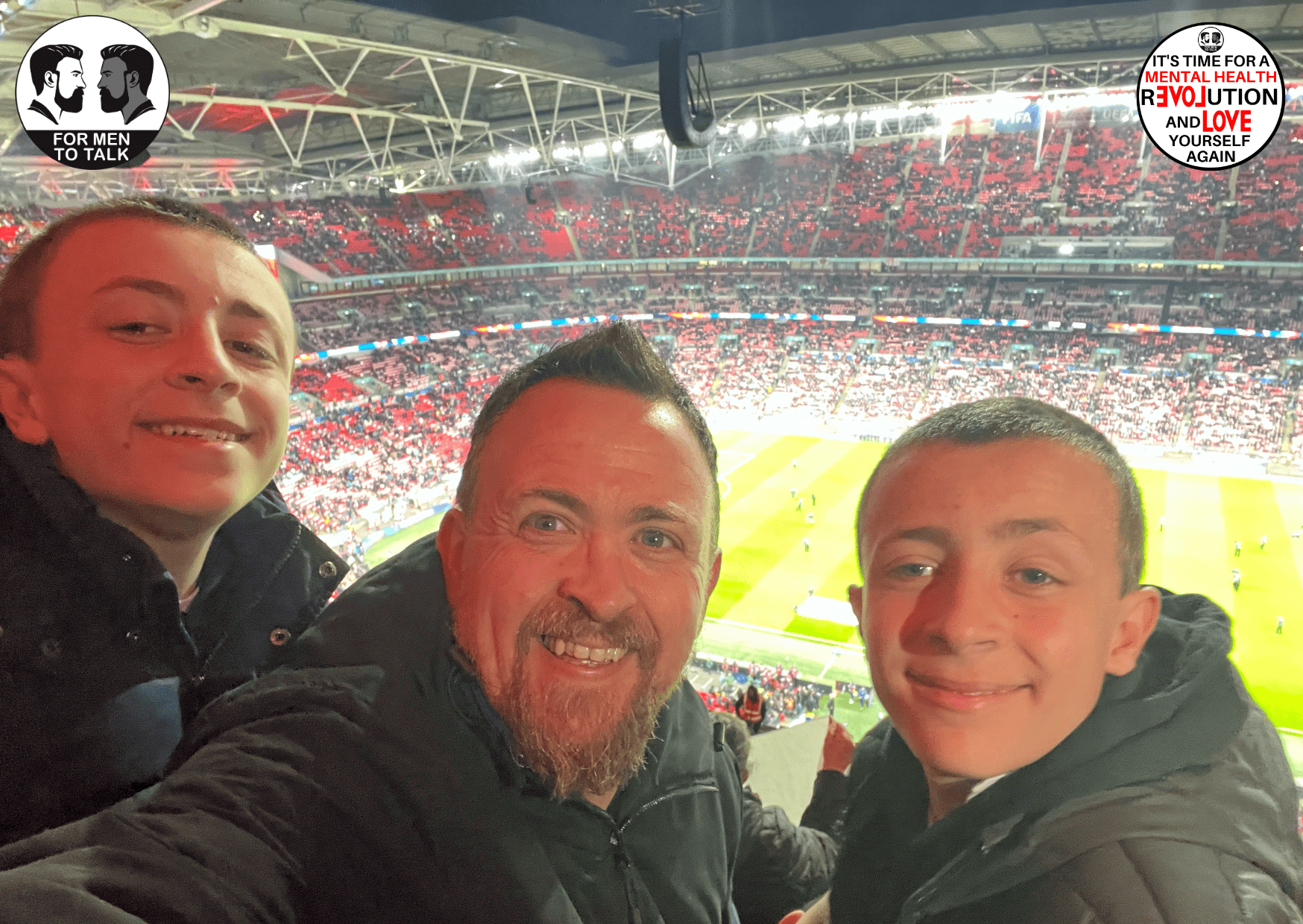Balancing Act: Navigating fatherhood and mental health advocacy

By Luke Newman, Founder of ‘For Men To Talk’
Life can be a juggling act, especially when you’re wearing multiple hats. As the founder of ‘For Men To Talk,’ a men’s peer support group dedicated to fostering open conversations about mental health, I find myself constantly navigating the delicate balance between work and family. Working two jobs in the mental health sector, I often find it challenging to carve out quality time for my twin boys, Harry and Oliver. However, amidst the chaos, there are moments that shine through, like the recent England vs Malta football game, where I cherished the simple joy of bonding with my sons.
The journey of ‘For Men To Talk’ began with a personal revelation about the importance of mental health. Working in the mental health field, I witness the struggles that many men face in silence. The societal expectation for men to be stoic and resilient often results in suppressed emotions, leading to a detrimental impact on mental well-being. Recognising the need for a space where men could openly share their experiences, I founded ‘For Men To Talk’ to create a community that encourages dialogue, support and understanding.
However, as I poured my energy into building this support network for others, I couldn’t ignore the challenges I faced in my own life. Balancing two demanding jobs and maintaining a strong connection with my children required intentional effort. It’s a constant negotiation between professional responsibilities and personal commitments, a tightrope walk that many parents, particularly those deeply invested in mental health advocacy, can relate to.
The England vs Malta football game became a poignant reminder of the significance of these moments of connection. Amidst the pressures of work and the relentless pace of life, sports have a unique way of bringing people together. Sharing the excitement of the game with Harry and Oliver was not just about the sport itself; it was a celebration of the simplicity of joy, the power of shared experiences, and the bonds that tie us together.
In our pursuit of mental health advocacy, it’s crucial to acknowledge the importance of self-care and family connections. Being attuned to our own well-being is not only a personal responsibility but also a prerequisite for effectively supporting others. As the saying goes, “You can’t pour from an empty cup.” Taking a step back to engage in activities that bring joy, like watching a football game with loved ones, is a vital aspect of maintaining that delicate balance.
The challenges I face in finding time for my children underscore the broader societal issue of work-life balance. As we advocate for mental health awareness, we must also advocate for supportive workplaces and societal structures that prioritise family time and individual well-being. By sharing our own struggles and triumphs, we contribute to breaking down the stigma surrounding vulnerability and asking for help when needed.
In the midst of our busy lives, let’s not forget the essence of what we’re fighting for in the realm of mental health advocacy, a world where individuals are empowered to prioritise their well-being and form meaningful connections. For me, these values are not only principles guiding ‘For Men To Talk’ but also a personal commitment that echoes in the precious moments spent with my twin boys.